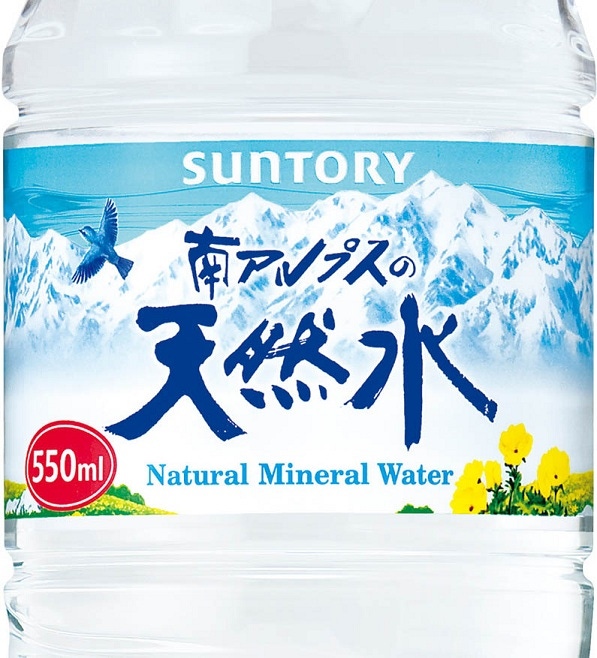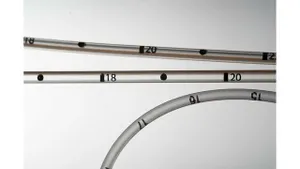Anellotech's economical bioplastics get an investment boost
Startup makes progress toward commercialization of cost-competitive 100% bio-based plastics for use in Suntory beverage bottles and other products.

 What’s in a name? More often than not, a lot. In Italian, the “anello” part of startup Anellotech (Pearl River, NY) means “ring” as in benzene ring in emphasizing the company’s bioplastics technology platform that produces aromatic chemicals and fuels from renewable nonfood biomass sources. Founded in 2009, the company revealed new investments and other news in an in-depth interview with PlasticsToday.
What’s in a name? More often than not, a lot. In Italian, the “anello” part of startup Anellotech (Pearl River, NY) means “ring” as in benzene ring in emphasizing the company’s bioplastics technology platform that produces aromatic chemicals and fuels from renewable nonfood biomass sources. Founded in 2009, the company revealed new investments and other news in an in-depth interview with PlasticsToday.
It announced January 18 further investment by Suntory Holdings Ltd. (Osaka, Japan), which uses a significant amount of PET bottles across its expansive beverage portfolio. As one of Anellotech’s principal strategic investment partners, Suntory's alliance proposes to develop and commercialize cost-competitive manufacture of biomass-derived products that enable 100% bio-based plastics for use in beverage bottles. Other crucial points:
Anellotech’s Bio-TCat (“thermal catalyst”) process produces cost-competitive renewable aromatic chemicals (benzene, toluene and xylenes, i.e., “BTX”) from non-food biomass for use in manufacturing
 plastics such as polyester, nylon, polycarbonate and polystyrene.
plastics such as polyester, nylon, polycarbonate and polystyrene.Suntory’s additional $9 million in Anellotech’s Bio-TCat technology is part of a new $15 million package and brings the brand’s total investment to more than $25 million since 2012.
Anellotech completed the commissioning in December 2017 of a 25-meter/82-foot tall TCat-8 pilot plant (shown) started up in 2017 at the Southampton Resources’ HQ facility in Silsbee, TX, as a step toward commercial plant design.
Learn more about packaging and plastics at WestPack and PLASTEC West in Anaheim, CA, February 6-8, 2018. The venue includes free educational presentations, hands-on demos, networking opportunities, expert-led Innovation Tours and of course hundreds of exhibitors. For more information, visit the WestPack website. |
Packaging resources present and future
The Silsbee facility is now capable of operating 24/7, a benchmark in which Anellotech’s technology has progressed beyond lab scale to the pilot-plant level. David Sudolsky, Anellotech president and CEO, tells PlasticsToday,  “We’ve made significant progress achieving key milestones enabling us to now begin production of prototype test samples of renewable bio-chemicals for ultimate conversion to bio-based plastics. Together with our development partners, we will demonstrate a scalable and cost-effective route to bio-paraxylene (p-xylene) production.” He outlines the benefits of the company’s drop-in technology, noting that it:
“We’ve made significant progress achieving key milestones enabling us to now begin production of prototype test samples of renewable bio-chemicals for ultimate conversion to bio-based plastics. Together with our development partners, we will demonstrate a scalable and cost-effective route to bio-paraxylene (p-xylene) production.” He outlines the benefits of the company’s drop-in technology, noting that it:
Produces aromatics in a one-step process that uses a relatively inexpensive refining catalyst rather than a costly precious metal catalyst;
Use of wood and other non-food biomass makes it more cost effective and cost-competitive compared to bio-based processes based on sugar as a feedstock;
Greatly reduces greenhouse gas emissions vs. petroleum-derived alternatives based on preliminary engineering studies;
Is adaptable to a variety of non-food biomass types, using sources including wood such as pine and agricultural residues including corn stover (non-kernel, non-food portion), sugar cane processing residue and palm oil residue, all of which are in abundant supply, Sudolsky points out.
The connection was made with Suntory after Sudolsky spoke at a bioplastics conference in 2011. After 8 months’ vetting by Suntory, it concluded that Anellotech’s technology had the best chance of being cost-competitive versus other bio-based aromatics processes that were further along in development.
 The brand’s sole venture into bioplastics is its Mineral Water Suntory Tennensui bottle, which is the same as the Coca-Cola PlantBottle. Both consist of a 30% bio-based PET using monoethylene glycol (MEG) produced from sugar cane ethanol—the other 70% of the PET’s weight comes from p-xylene—that’s converted into purified terephthalic acid (PTA) and combined with MEG to make PET. The goal of Anellotech and Suntory is to achieve a 100% bio-based PET by producing PTA from bio-sourced p-xylene made by the Bio-TCat process.
The brand’s sole venture into bioplastics is its Mineral Water Suntory Tennensui bottle, which is the same as the Coca-Cola PlantBottle. Both consist of a 30% bio-based PET using monoethylene glycol (MEG) produced from sugar cane ethanol—the other 70% of the PET’s weight comes from p-xylene—that’s converted into purified terephthalic acid (PTA) and combined with MEG to make PET. The goal of Anellotech and Suntory is to achieve a 100% bio-based PET by producing PTA from bio-sourced p-xylene made by the Bio-TCat process.
This step toward greener packaging is part of the brand’s sustainability goals; in 2014, the Suntory Group established its Environmental Vision toward 2050 and set targets toward 2020. It intends to replace petroleum-derived raw materials with renewable raw materials in PET bottles to the degree possible, which is where a future commercial-volume Bio-TCat plant would be essential.
Sudolsky summarizes the favorable feedstock and elemental extraction economics for Bio-TCat BTX biomass sourcing compared to the PlantBottle’s sugar sourcing for companies like Suntory:
Sugar has a composition of ~33% carbon-hydrogen (the rest is oxygen), while biomass is ~48% carbon-hydrogen;
Sugar is currently at about 20 cents a pound or $400 a ton vs. biomass at around $60 a ton.
“The cost of MEG made from sugar is almost the selling cost of benzene today, so starting with sugar makes it very difficult to compete economically with fossil-sourced inputs,” Sudolsky explains. “Even after several years’ development, sugar-sourced biomaterial [PlantBottle] providers Gevo and Virent have yet to put a commercial processing system online, presumably due to costs.”
Sudolsky declines to identify the details of the business arrangement with Suntory such as any exclusivity to certain markets or geographies, though the brand’s long-term vision and significant investments speak volumes about its confidence in the technology.
For Anellotech, market opportunities go well beyond packaging.
Next: Polymer options, products and market drivers
Suntory has maintained the #1 position as the most sustainable company in Japan by the Nikkei Business Index for five of the last six years, Sudolsky points out. The other #1 company over that period was a division of Toyota, Toyoto Tsusho, that is also an Anellotech investor, he discloses.
 While the main interest the company has seen to-date has been for PET beverage bottling and automotive products, that’s changing.
While the main interest the company has seen to-date has been for PET beverage bottling and automotive products, that’s changing.
“We’re getting interest from benzene-chain players driven by consumer demand for greener alternatives for companies interested in bio-based sources for polycarbonates, styrenics, ABS and polyurethanes,” reports Sudolsky. “End use applications [cover] a range of consumer products, including clothing/textiles, adhesives, coatings, consumer electronics, detergents and tires.
“Companies have looked to packaging as a bio-sourced venue, and now the product itself, for example eyeglasses, can be 100% bio-sourced. And the economic business case for those green products is better than it is for packaging-only adapters.”
Tipping point to accelerated growth
It seems that the bioplastics company has reached a major tipping point.
“We look forward to partnering with innovative consumer product companies, brand owners and petrochemical companies that are seeking first-mover advantage with a renewable technology that offers unique and compelling environmental and cost benefits,” Sudolsky says.  “More companies have corporate sustainability goals and a number have sustainability as part of bonus compensation for management. Companies are looking to get major amounts of carbon out of their product lines. This is especially true of benzene-chain bioplastics—there’s a real opportunity for a company in that market to join our stakeholder group.”
“More companies have corporate sustainability goals and a number have sustainability as part of bonus compensation for management. Companies are looking to get major amounts of carbon out of their product lines. This is especially true of benzene-chain bioplastics—there’s a real opportunity for a company in that market to join our stakeholder group.”
Sticking with a target date the company set a few years ago, Anellotech remains committed to having commercial facilities committed by 2020, Sudolsky says.
Lastly, it’s worth noting that with the exception of the initial outlay by Suntory in 2012, all subsequent stakeholder investments in Anellotech were made when oil was $60 barrel and below. “That’s a clear indicator of our low-cost profile,” says Sudolsky. “Plastics are excellent materials functionally, and by having them bio-sourced presents the best of both worlds.”
PlasticsToday has filed five previous reports on Anellotech that you can find here.
About the Author(s)
You May Also Like




